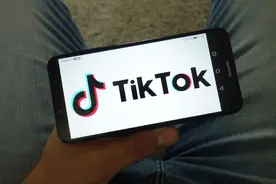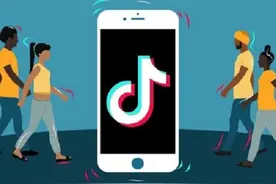Recently, the news that the US side tried to block TikTok, the overseas version of Chinese social software Diaoyin, by administrative means, caused a huge stir.In his speech on the 3rd, the American leader further threatened that "TikTok must sell to the United States before September 15, or it must be closed".He also threatened that this transaction of TikTok should pay a considerable "commission" to the US treasury.This overt statement of hegemony was widely questioned and condemned by the United States and abroad.Gene Jinmelman, former chief legal adviser of the Anti monopoly Department of the US Department of Justice, pointed out that the statement of US leaders could not be found in the US anti-monopoly law.Some analysts pointed out that this was a political persecution jointly promoted by American politicians and some Internet giants, which exposed the hysterical mentality of American politicians who deliberately provoked the confrontation between China and the United States and suppressed China's development, and also completely tore down the false veil of the so-called "fair competition" of the United States.In fact, the United States has not been "eyeing" this legally operated social software that is widely praised by Western users for a day or two, but has been struggling to find evidence to start.This time, the US tried to block TikTok on the ground of so-called "national security", which is very similar to the "presumption of guilt" made by Huawei and other Chinese enterprises.It is totally shameless.Mark Lemley, a law professor at Stanford University, made it clear in an interview with CNN recently that there is no substantial evidence that TikTok poses a threat to the national security of the United States.Western public opinion also generally believes that the so-called "national security" is just a crime woven by the US side to comprehensively suppress Chinese high-tech enterprises, or even launch a "science and technology war" against China.From a commercial point of view, TikTok, as a social software with 1 billion fans around the world and popular in western society, cannot fail to attach great importance to data security.Although its parent company has a Chinese background, this software has been completely independent from the Chinese market since the beginning of its development and listing, and has taken a development strategy to meet the needs of overseas users.TikTok has been conducting business activities in the United States in accordance with market principles and international rules, complying with American laws and regulations, storing all American user data in the United States, and providing backup support in Singapore.The US politicians stigmatized it as China's "intelligence tool", which is a sinister political manipulation and frame up.It is a naked politicization of economic issues to cater to the political desires of a few US politicians.Forbes magazine reported on the 3rd that the US claim that TikTok collects user data and sends it to the Chinese government is unconfirmed.All social media have collected a lot of data, and TikTok does not collect more data than other social media in the US.In addition, the US administration threatened to "block" TikTok.Another reason is that this software has attracted Western users with its distinctive positioning and innovation in the fair competition with many US Internet giants, breaking the US giants' long-standing monopoly on social media, which makes the latter envious.In their view, the rise of new Internet stars represented by TikTok shows that the competitiveness of China's science and technology and digital industries is improving significantly.They worry about their competitiveness
-
Home
-
Product
SolutionsmanagementUnified management of multiple mobile phones and accounts
Marketing automationUse scripts instead of manual automation to run APP applications
Self-developed scriptJavascript can be used to develop all mobile terminal automation operations
SolutionsData monitoringMulti-dimensional monitoring account and peer online red data
analysis reportMulti-dimensional analysis report of data
-
About






Comment Cancel reply